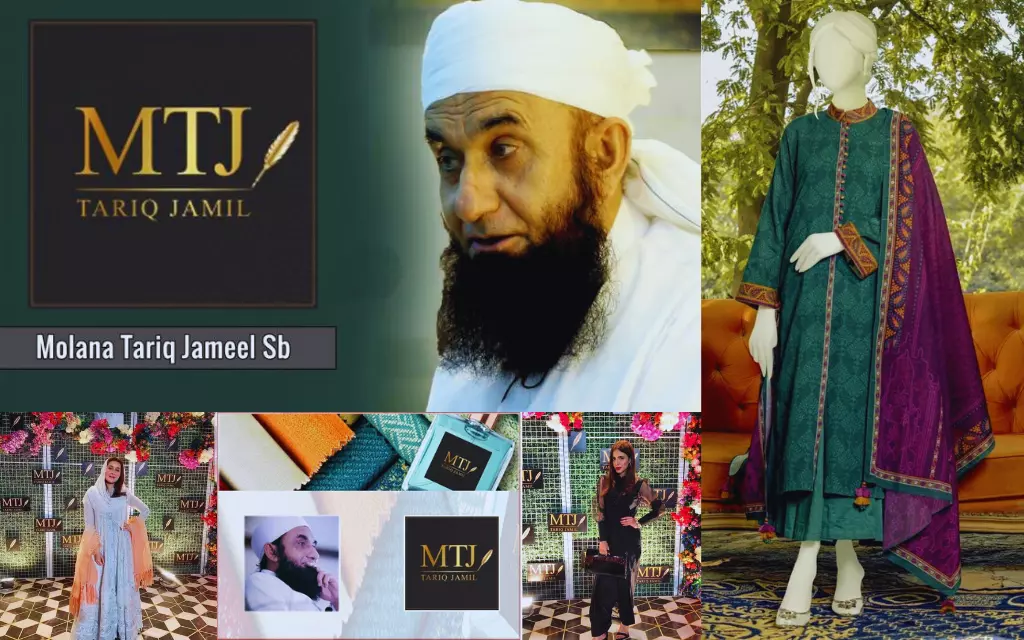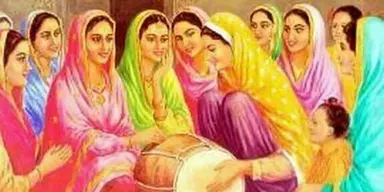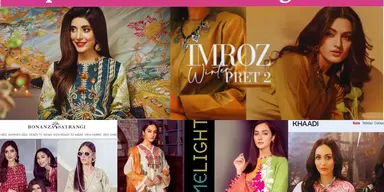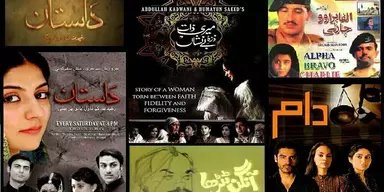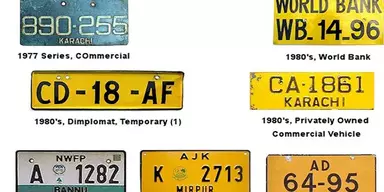Today’s globalized society relies heavily on recognizable brands. They stand for more than a name or a brand. The decisions consumersmake and brands profoundly influence the patterns they follow. One’s sense of style, cultural identity, and a reflection of societal standards are profoundly influenced by the brands one wears. A well-known Islamic scholar and speaker, Maulana Tariq Jameel, saw the potential in establishing his clothing line and set out on a remarkable trip. This article examines the role of clothes and brands in modern culture and explains why Maulana Tariq Jameel decided to enter the fashion business.
We place a great deal of significance on the labels we wear. Our clothes, whether cutting-edge runway styles, traditional ethnic garb, or religiously-motivated modesty, are a powerful means of self-expression. They’re a way for people to share who they are and what they stand for with the world. Therefore, brands allow us to express ourselves and consciously reflect our true selves in our exterior looks.
Maulana Tariq Jameel was motivated to launch his clothing brand by the divide between modesty and the current fashion scene. Clothing is a means of personal expression and reflects and reinforces larger social and cultural ideals. The unique dress customs of each culture are preserved and celebrated via the wearing of traditional garments. Modesty is highly valued in Islamic contexts, and there are even rules on what women should wear. Muslims all around the globe are on the lookout for clothing that meets these standards and is in style right now.
Maulana Tariq Jameel set out on a quest to unite religion and style by drawing on his extensive familiarity with Islamic teachings and a keen awareness of contemporary issues. By launching the Maulana Tariq Jameel Clothing Brand, he hoped to provide a venue where devout Muslims could shop for garments that respected Islamic law without sacrificing style. Maulana Tariq Jameel saw the need for a line of modest but stylish apparel that would appeal to Muslim consumers, so he created it.
The inspiration behind Maulana Tariq Jameel’s clothing line extends well beyond following fashion trends. The motivation behind it is to help people feel more confident in themselves and closer to their religion. The Brand’s apparel line captures the spirit of modesty and Islamic traditions, allowing its customers to display their background while still expressing their individuality proudly. As Maulana Tariq Jameel points out, clothing is more than just an accessory; it’s a medium through which we construct our identities, define our relationships with others, and broadcast our deepest convictions to the world.
The concept that clothing companies may transcend their materialistic character and serve as catalysts for change is reflected in Maulana Tariq Jameel’s dedication to creating a good effect on society via his work. In addition, social responsibility and generosity serve as the overarching principles of Maulana Tariq Jameel’s apparel line. A part of the company’s income is donated to charitable causes in an effort to improve the lives of underprivileged people, expand access to healthcare and education, and reduce poverty worldwide.
Read on as we explore the vision, ideals, and effects of the Maulana Tariq Jameel Clothing Brand and everything that makes it special.
Maulana Tariq Jameel Launches His Clothing Brand
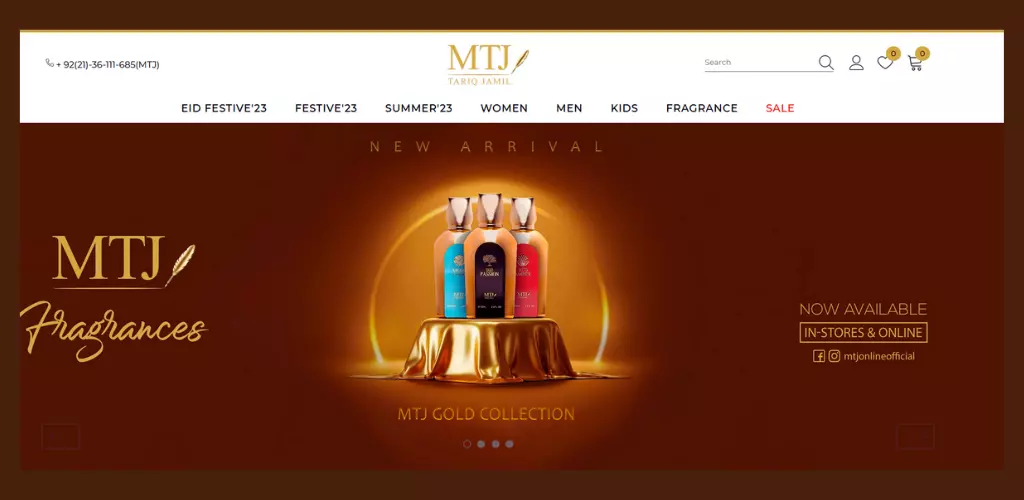
To meet the rising need for modest clothes that nevertheless follows current fashion trends, the Maulana Tariq Jameel clothes Brand was founded. Known for his spiritual teachings and powerful preaching, Maulana Tariq Jameel saw the need for apparel that meets the needs of Muslims who want to be modest while looking well. So he set out to create an apparel line that would unite the worlds of religion and style.
After seeing how difficult it is for Muslims to obtain clothes that respect their cultural and religious norms, Maulana Tariq Jameel decided to pursue a career in the design industry. Traditional garments often lacked contemporary styling, while contemporary fashion ignored the need for modesty. Many people felt torn and compelled to compromise while making wardrobe decisions because of this chasm between aesthetic preferences and modesty norms.
Maulana Tariq Jameel started his clothing line to resolve this issue. The idea for the Brand was born out of the conviction that one’s morals and ethics shouldn’t have to take a back seat to one’s desire to look good. Instead, people should be able to purchase tasteful, modest garments that are in keeping with their culture.
The Maulana Tariq Jameel clothes Brand was founded as a destination for modest clothes that caters to both men and women. The label’s offerings span from classical to contemporary takes on modest clothing, including the requisite abayas, hijabs, and thobes. Careful consideration was given to every aspect of the design process, and each garment has original designs, high-quality materials, and flattering modern cuts.
Maulana Tariq Jameel’s goal in launching his namesake clothing line was to encourage Muslims to take pride in their history while allowing them to exhibit their individuality while being true to Islamic values. The Brand’s modest and stylish designs make its customers feel good about themselves. People are urged to follow the latest fashions while honoring their religious and cultural identities.
One of the goals of the Maulana Tariq Jameel Clothing Brand is to encourage Muslim solidarity and an appreciation of Muslim culture. The company promotes diversity and cross-cultural understanding by drawing inspiration from various cultures in its designs. It celebrates the richness of different customs and aims to bring Muslims together around the globe.
Upholding Modesty and Elegance
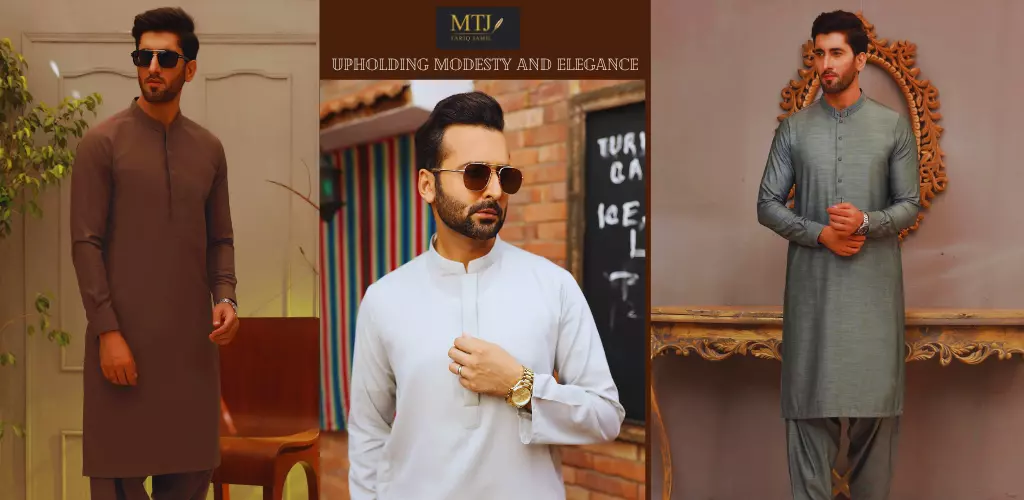
Modesty, a fundamental tenet of Islamic beliefs, extends beyond a person’s clothing choices to include their actions, words, and demeanor. The maintenance of modesty is important to the Maulana Tariq Jameel Clothing Brand. The Brand’s apparel designs reflect the company’s belief that modesty is essential to maintaining personal dignity and encouraging humility.
The Maulana Tariq Jameel Clothing Brand provides a wide variety of fashionable, modest garments for men and women. Fashionable and sensitive to cultural and religious norms, these designs provide a range of alternatives for consumers. The criteria of modesty are fulfilled, while modern fashion aspects are included in the design of traditional clothes like abayas, hijabs, and thobes.
The label provides both classic garments and contemporary takes on modest dresses. These patterns cover various aesthetics, from daily use to formal dress. The designers produced these items to make their customers feel beautiful and confident in whatever they wear.
The Maulana Tariq Jameel Clothing Line understands that modesty should not be synonymous with boring or unsophisticated. It holds that modesty may be expressed in a manner that respects the uniqueness and beauty of each person. The Brand’s commitment to understated elegance and humility sends a message that it’s okay to be who you are while still looking your fashionable best.
Encouraging Self-expression
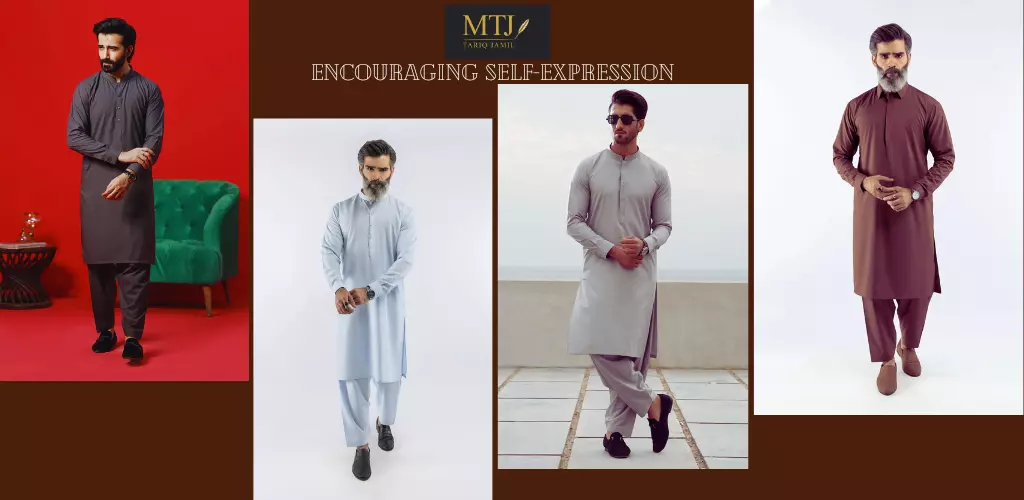
The Maulana Tariq Jameel Clothing Brand promotes modesty but also values the free expression of individuality. The company is founded on the belief that clothes are a powerful form of self-expression. The Brand’s designs aim to provide customers with a platform to show their personality while being faithful to Islamic law.
The Brand’s designs enable customers to express their individuality by mixing and matching colors, prints, and textiles. The business allows people to show their individuality via clothing, whether through a colorfully patterned headscarf, an elaborately made abaya, or a fitted thobe with distinguishing embellishments.
The Maulana Tariq Jameel Clothing Brand goes beyond only clothes to show individuality. Its goal is to encourage people to live according to humility, kindness, and honesty principles. Wearing the label’s apparel is meant to be a public declaration of one’s commitment to and demonstration of these values.
The Brand encourages its consumers to take pride in their heritage by providing a forum to express themselves freely. Clothing by the Maulana Tariq Jameel Brand represents the wearer’s character, beliefs, and ideals, not just their external look.
Ethical and Sustainable Practices
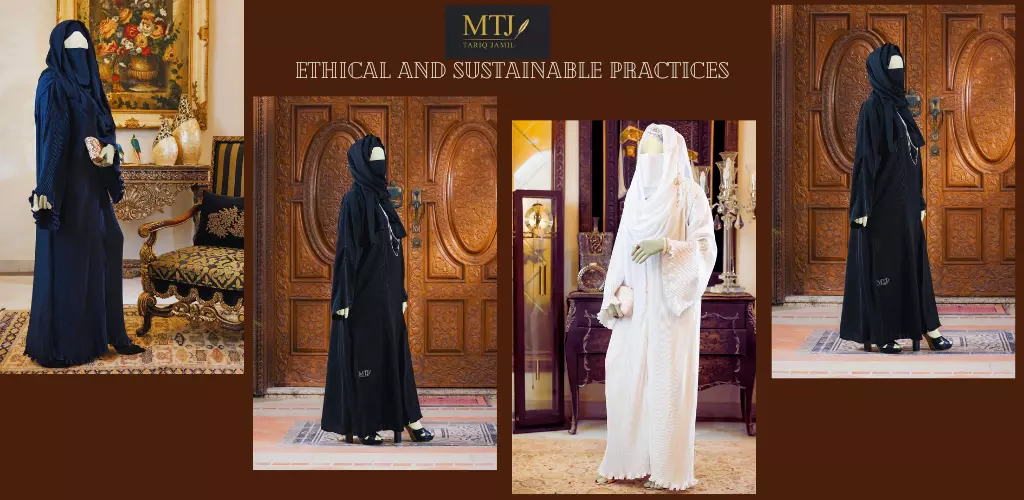
Ethical and environmentally responsible business practices are cornerstones of the Maulana Tariq Jameel Clothing Brand’s approach to business. The company is conscious of its business’s environmental and social costs and works to reduce them while advocating for ethical production.
The Brand’s commitment to fair trade standards across its supply chain is a core tenet of its ethical business practices. The company prefers partnering with manufacturers and suppliers that provide decent pay and working conditions and protect the rights of its employees. The company’s mission is to improve the lives of its workers and the economy by advocating for decent working conditions.
The company is committed to humane working conditions and environmentally sound production methods. It uses only environmentally friendly, long-lasting, and biodegradable fabrics and materials. The packaging for this company is also environmentally sensitive, making an effort to reduce excess packaging and use recyclable or biodegradable components.
The Maulana Tariq Jameel Clothing Brand leads by example in the fashion business with its commitment to ethics and sustainability. It proves that fashionable, high-quality garments can be produced with little impact on the environment and in support of fair treatment of employees.
Social Impact and Philanthropy
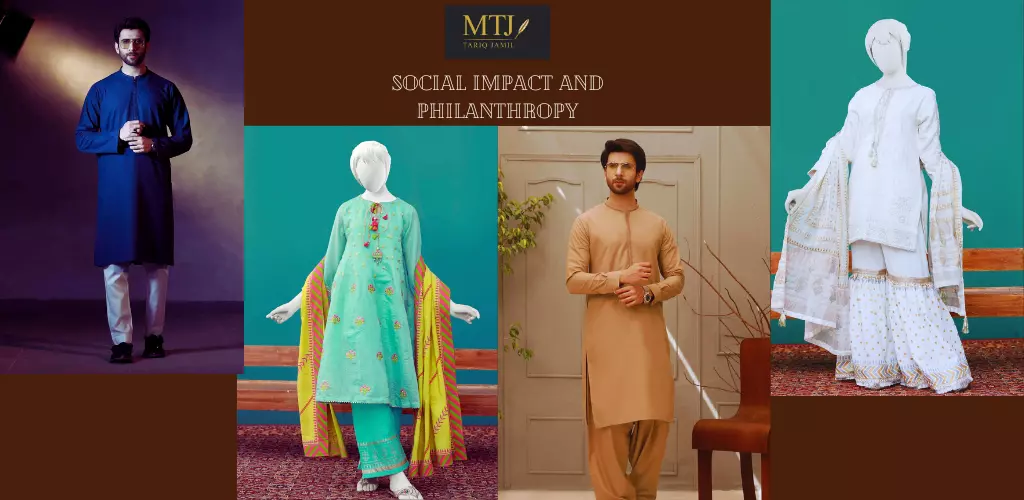
The Maulana Tariq Jameel Clothing Brand cares greatly about producing a good social effect, above and beyond its dedication to ethical and ecological practices. A part of the company’s earnings is donated to causes, including improving access to healthcare and education and fighting poverty.
The company’s charitable work is part of a larger strategy to aid underprivileged areas and people everywhere. It helps people escape poverty by funding educational programs that provide them with the tools they need to improve their lives. Similarly, the company’s support for healthcare programs ensures that individuals with lower incomes have access to necessary medical care.
Brand’s charitable works serve as a call to action for consumers to show more empathy and care for the world around them. By sharing Maulana Tariq Jameel’s values, the Brand’s reach goes beyond the realm of fashion. It understands that success is measured not only by financial gains but by the lives one has impacted for the better.
The Maulana Tariq Jameel Clothing Brand uses its voice and platform to inspire people to be agents of change and contribute to building a more just and compassionate world. In addition to monetary donations, the Brand’s influence extends to other spheres of society. It provides a forum for discussing important social problems and cultivating a shared sense of accountability.
Fostering Unity and Cultural Appreciation
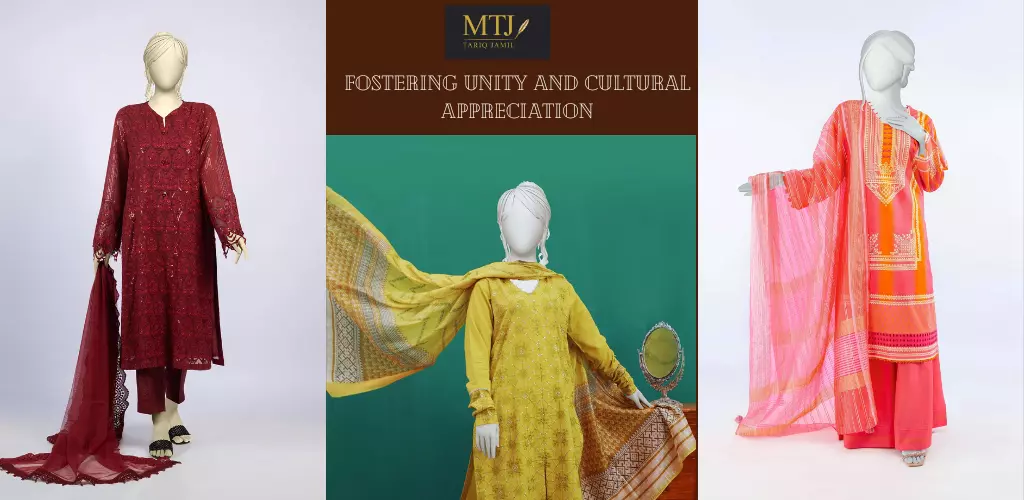
The Maulana Tariq Jameel Clothing Brand is dedicated to bringing people together and increasing their respect for other cultures, particularly those of the Muslim faith. The company’s mission is to provide an environment where people from diverse walks of life may come together to discuss issues of mutual interest.
The company’s products honor the many cultural contributions of Muslims worldwide. The company celebrates the richness and variety of Islamic cultures by incorporating designs inspired by Islamic art, architecture, and textiles. The apparel line promotes tolerance and acceptance by drawing inspiration from various cultures.
The Maulana Tariq Jameel Clothing Brand’s mission is to foster mutual tolerance and understanding by embracing cultural diversity. The Brand’s designs promote a feeling of solidarity among Muslims throughout the globe by encouraging people to accept and learn from the opinions of others.
The Brand fosters a common, spiritual identity by encouraging community and acceptance of all people, regardless of their background or beliefs. The Brand also facilitates communication and understanding among different cultures. Doing so helps foster an environment where people from all walks of life feel comfortable speaking their minds and celebrating their differences.
The Maulana Tariq Jameel Clothing Brand aspires to establish a worldwide Muslim community united by shared ideals and tolerance for diversity via its dedication to unity and cultural appreciation.
Empowering Women
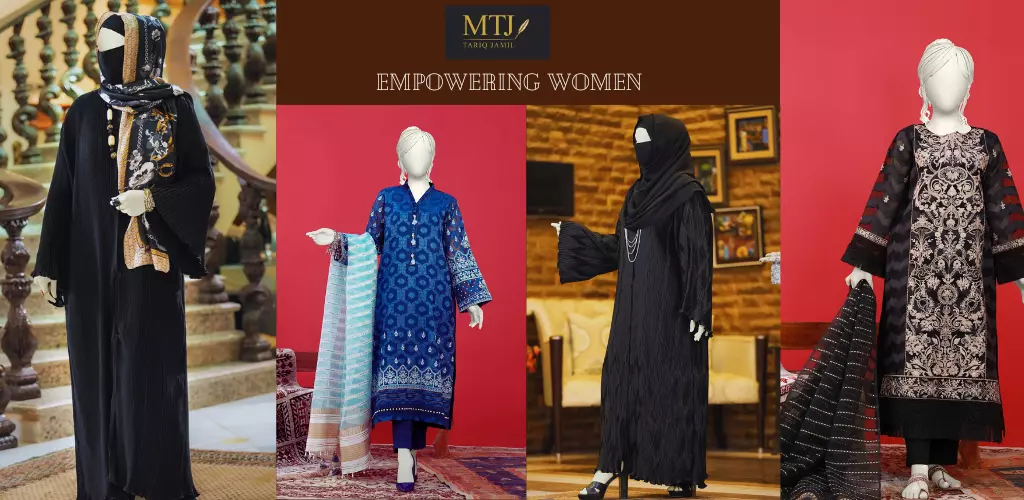
The Maulana Tariq Jameel Clothing Brand has made women’s empowerment a priority. The company understands the significance of offering women fashion alternatives that help them feel strong, independent, and responsible for their lives.
Various styles are available from the label, all created with ladies in mind. The label allows women to wear stylishly while maintaining their modesty by offering a wide range of options, from classic abayas and hijabs to the latest in modest skirts and tops.
Messages and promotions from the Maulana Tariq Jameel Clothing Brand go beyond just providing ladies with alternatives in what to wear. It is an effort to combat gendered assumptions and restrictive cultural standards. The company stands for the belief that women may be powerful and self-reliant without compromising their morals or traditions.
The company also promotes the idea that women should be themselves and not conform to societal norms. The business encourages self-assurance in women by offering stylish but modest attire that allows them to set their criteria for beauty and success.
The Maulana Tariq Jameel Clothing Brand understands that empowering women is more than just clothes. The company is heavily invested in programs that empower women to further their education, careers, and communities. The company wants to foster an open and supportive culture where women may reach their full potential.
Sources
- Hjarvard, S. (2003). “Media in a globalized society.” Museum Tusculanum Press. https://books.google.com.pk/books?hl=en&lr=&id=Egr4PZKV-s0C&oi=fnd&pg=PA7&dq=globalized+society&ots=DLZevqttMD&sig=UwOGDbn-nzvpQ74BxLe6vzgLiGw&redir_esc=y#v=onepage&q=globalized%20society&f=false
- Girdhar, A. (2023). “Most Reputed Brands in the World” AppyPie https://www.appypie.com/top-global-brands
- Lucid. (2023). “Definition and examples of the consumer decision-making process” Lucid https://www.google.com/url?esrc=s&q=&rct=j&sa=U&url=https://www.lucidchart.com/blog/consumer-decision-making-process&ved=2ahUKEwiw-ZmH5oP_AhXeRvEDHQTsBIQQFnoECAoQBQ&usg=AOvVaw3kNtdvFbRu_8M1dco08yO2
- Jensen, L. A., Arnett, J. J., & McKenzie, J. (2011). “Globalization and cultural identity (pp. 285-301).” Springer New York. https://link.springer.com/chapter/10.1007/978-1-4419-7988-9_13
- Vanclay, F. (2020). “Reflections on Social Impact Assessment in the 21st century.” Impact Assessment and Project Appraisal https://www.tandfonline.com/doi/full/10.1080/14615517.2019.1685807
- Prideofpakistan. “MAULANA TARIQ JAMEEL” PrideOfPakistan https://www.prideofpakistan.com/who-is-who-detail/Maulana-Tariq-Jameel/655
- Winter, D. (2022). “How To Start a Clothing Brand: 12 Easy Steps (2023)” Shopify https://www.shopify.com/blog/206934729-how-to-start-a-clothing-line
- Scruton, R. (2006). “Modern culture.” A&C Black. https://books.google.com.pk/books?hl=en&lr=&id=Jmt2PmOf4GoC&oi=fnd&pg=PA1&dq=+modern+culture+&ots=1ZQyR5ebKQ&sig=mmRThSMKxz0DuKgbDEt3e94cnxY&redir_esc=y#v=onepage&q=modern%20culture&f=false
- Godart, F. (2012). “Unveiling fashion: Business, culture, and identity in the most glamorous industry.” Basingstoke, UK: Palgrave Macmillan. https://link.springer.com/book/10.1057/9781137000743
- Devi, P., & Suresh Kumar, P. (2012). “Traditional, ethnic and fermented foods of different tribes of Manipur.” NISCPR https://nopr.niscpr.res.in/handle/123456789/13427
- AlDabbagh, M. (2019). “Modesty in apparel Motivated by Culture, Faith and Health: Review study” Molag https://molag.journals.ekb.eg/article_154160_648390561414c39ce9fb6dff22c449f6.pdf
- Reverso (2023). “Fashion” ReversoDictionary https://dictionary.reverso.net/english-definition/fashion+scene
- Citybook (2023). “Traditional Dresses And National Dress of Pakistan” CityBook https://citybook.pk/blog/traditional-dresses-and-national-dress-of-pakistan/
- DICKSON, J. (2010). “Does religion unite or divide us?” Smh https://www.smh.com.au/politics/federal/does-religion-unite-or-divide-us-20110422-1drac.html
- Barise, A. (2005). “Social work with Muslims: Insights from the teachings of Islam.” Critical Social Work https://ojs.uwindsor.ca/index.php/csw/article/download/5660/4627?inline=1
- MacKinnon, B., & Fiala, A. (2014). “Ethics: Theory and contemporary issues.” Cengage Learning https://books.google.com.pk/books?hl=en&lr=&id=J8WiAgAAQBAJ&oi=fnd&pg=PR3&dq=contemporary+issues&ots=afO8I_rgm2&sig=VTVURxDMK7HCkv-clBT1sn6yQw0&redir_esc=y#v=onepage&q=contemporary%20issues&f=false
- Coulson, N. J. (2011). “A history of Islamic law” AldineTransaction https://books.google.com.pk/books?hl=en&lr=&id=Hh5rf0YLfAEC&oi=fnd&pg=PA1&dq=+Islamic+law&ots=Ha2pAGa7CI&sig=G5b3eS20G2JUc6IdqekDtIWUM0o&redir_esc=y#v=onepage&q=Islamic%20law&f=false
- MARCUS, O. (2023). “2023 Spring Fashion Trends Straight From The Runway To Start Wearing Now” Stylecaster https://stylecaster.com/fashion-trends-2023/
- Waugh, E.H. (1999). “The Islamic Tradition: Religious Beliefs and Health Care Decisions” https://www.advocatehealth.com/assets/documents/faith/islamic_tradition.pdf
- Hazard Jr, G. C. (1994). “Law, morals, and ethics.” HeinOnline https://heinonline.org/HOL/LandingPage?handle=hein.journals/siulj19&div=31&id=&page=

